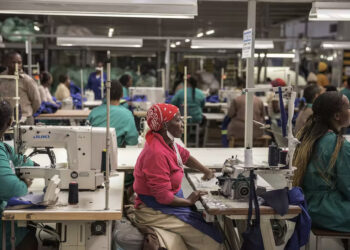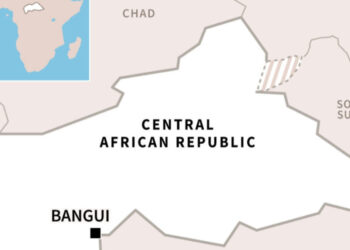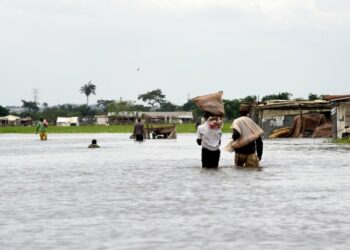Just over a year ago, Chance, a young Nigerian woman, was approached by some of her neighbors who persuaded her that she should drop out of school and leave her country, offering a tantalizing job opportunity in Malaysia.
“(They told me) I would work in restaurants and they would pay me USD 800 (400,000 CFA) monthly,” she told the International Organization for Migration.
On January 4, 2018, she left her home and everyone she had ever known, hopeful for the chance to create a better, more dignified life for herself.
But to her dismay, she soon realized there was no restaurant job for her in Malaysia. Instead, she was brought to Mali, where she was told she would be working as a prostitute.
Preying on the Vulnerable
Each year, thousands of other Nigerian women are lured into sex work as traffickers prey on the desperate and vulnerable with false promises.
Since 2017, IOM has reported a massive increase in sex trafficking in the region. Some of the exploited women and girls are ultimately trafficked through Libya to countries all over the globe, while many others, like Chance, are brought to neighboring countries throughout the region like Mali where they become stranded and left with little choice but to do as they’re told.
“The vulnerability of migrants increases along the route of their journeys, especially for women traveling alone,” said Michele Bombassei, IOM’s Specialist on Migrant Protection and Assistance for West and Central Africa.
"We cannot be in denial about this problem any more" – Actress @RichaChadha stars in a new film hoping to shine a light on the global problem of human trafficking.
For more news, head here: https://t.co/iOm40vn1kt pic.twitter.com/389Otrt8ku
— Sky News (@SkyNews) January 25, 2019
Prompted by a startling increase in referrals from the government of Mali, IOM is now fighting back, working to identify and protect women and girls who have been trapped into sex slavery with the ultimate goal of returning them home to their communities.
In Mali, IOM has intervened in 260 such cases since 2017, with 238 of the victims originating from Nigeria. In 2018, the group assisted 188 Nigerian sex trafficking victims, providing them with food, shelter, clothing, and medical and psychological services.
IOM has also been providing training to prosecutors, judges, law enforcement agents, government officials and NGO workers to help them identify and combat sex trafficking in Mali and Nigeria.
Combating Trafficking
Exploitation in the region is also not limited to sex trafficking.
“We should not think that women only are exposed to abuse. In the case of gold mining, for instance, we witness a large variety of abuse and exploitation, targeting men and women, and unfortunately children,” Bombassei said.
Last December, IOM participated in a fact-finding mission with Nigeria’s National Agency for the Prohibition of Trafficking in Persons seeking to gage the full extent of the human trafficking phenomenon in the region.
“We are working closely with NAPTIP, the leading anti-trafficking agency in Nigeria, and our collaboration during the mission is but one step towards the safe return of these victims as well as their proper rehabilitation to prevent further re-trafficking,” Frantz Celestin, IOM’s Nigeria Chief of Mission said.
Even with increased efforts from local and international officials, data and evidence-based research on human trafficking remains lacking.
IOM is now hoping to fill that gap and provide resources to officials so that they can better understand and combat the growing problem with the best possible policies and strategies.
More on the Subject
In recent weeks, Doctors Without Borders (MSF) teams in Libya have observed a sharp increase in the number of people held in detention centers.
Refugees, migrants, and asylum seekers intercepted or rescued at sea are being brought back to Libya in violation of international law and returned to overcrowded detention centers with dire living conditions.
Since the country was plunged into chaos following the war that ousted long-time dictator Muammar Gadaffi, Libya has been an epicenter of migrant exploitation and human trafficking and has even seen people sold in open slave markets.
Riots, Hunger Strikes Break Out in Libyan Refugee Detention Centers






















